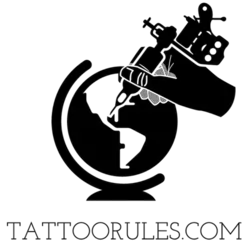We could list many reasons why North Dakota is such an appealing state to live and travel in.
Firstly, the landscape is incredibly varied, from the Badlands to the Great Plains and beyond. There are also plenty of opportunities to get outside and enjoy nature, whether you’re hiking, biking, or simply taking a scenic drive.
In addition to its natural beauty, Dakota is also home to many interesting historical sites. The state has a rich Native American history, as well as a fascinating cowboy culture. And of course, there’s also Mount Rushmore, which needs no introduction.
The Flickertail State, as it’s commonly known, is also filled with on-the-point tattoo parlors and extremely talented artists. So, it’s no wonder that more and more people are interested in getting tattooed while visiting or living in Dakota.
However, before you head to your favorite shop, it’s important to be aware of the state’s tattoo laws.
If you’ve been contemplating getting inked or starting work as an artist, stick with us for a few minutes as we dive into the current tattoo laws in North Dakota.
North Dakota Tattoo Laws & Regulations
When it comes to the body art industry, most US states, with the small exception of Maryland and Nevada, have it regulated.
And so does North Dakota.
The state has separate rules for clients and artists working in studios.
Let’s look into them now.
Tattoo Laws for Customers
As far as regulations for clients go, they mainly relate to the minimum age requirement.
In the state of North Dakota, you have to be at least 18 years old to get a tattoo.
You will be required to present a valid form of photo ID before the artist can start working on you.
But what if you’re still minor and desperate to get the ink work done as soon as possible. Can you get a tattoo at 16 in North Dakota?
Well, actually you can. The state’s tattoo laws for minors are relatively lenient, meaning you can actually get inked even if you haven’t high that magic number “18” yet – as long as you can provide written consent from your legal guardian. Additionally, the said guardian needs to be present throughout the whole duration of the session.
We say the laws are relatively lenient because there are a fair number of states that completely prohibit tattooing minors – with or without a written form. Examples include Illinois, Iowa or North Carolina.
Other than that, customers in North Dakota don’t really have to worry about following any specific regulations when getting a tattoo.
Unlike some individual states, such as Georgia, the allowed placement of tattoos isn’t regulated in any way.
Tattoo Laws for Artists
Now, let’s move on to the rules and regulations artists have to follow while working in their studios.
The first thing you need to know is that, in order to start working as a tattoo artist in North Dakota, you need to obtain a license from the local Department of Health.
Just as important is the regulation that prohibits artists from performing the procedure in any other place than in a licensed studio.
This means that you cannot tattoo someone in their home, nor can you do it in any other public place, such as a park or on the street.
The only exception to this rule is when the tattoo is being done as part of a medical treatment, in which case it can be done in a hospital or other similar facility.
What’s quite interesting is that in case the law is breached and a minor gets a tattoo without parental consent, it’s the artist who will be fined and not the minor or their guardian.
An artist breaching the law in this aspect is committing a class B misdemeanor, which can result in a fine of up to $1,500 and/or a short prison sentence (maximum 30 days). Additionally, there’s also a possibility of suspending the license.
Artists situated in North Dakota have free reign when it comes to choosing who and what they are willing to tattoo, as long as it’s not discriminative in any way.
It means that the artist can decline a tattoo in many situations, such as when:
- the artist finds the design offensive
- the placement of the tattoo isn’t appropriate
- the client seems intoxicated
- the client is rude
The list could go on.
References
To sum up, tattooing is a regulated industry in the state of North Dakota.
This means that both customers and artists have to follow certain rules and regulations.
The main regulation for customers is the minimum age requirement of 18 years old, although there are some leniencies for minors who have written consent from their legal guardians.
Artists working in the state need to have a license from the local Department of Health and they can only perform tattoo procedures in licensed studios.
The article you just read is based on information from official sources such as:


